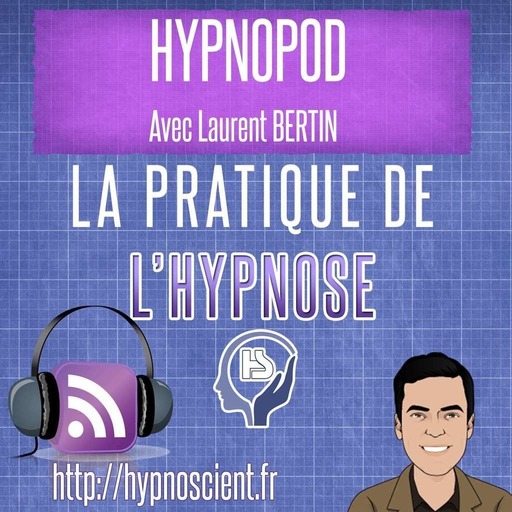Most of us want to help. But it can be hard to know how to do it, and not all altruistic deeds are equal, and sometimes they can be harmful. Sometimes glitzy charities satisfy the heart of a giver, but fail to deliver results.
That’s the paradox: motivating people to give often demands glitz, but glitzy causes often don’t provide the improvement to people’s lives than their less glamorous charity counterparts. GiveWell is a organization that quantitatively evaluates charities by the actions they accomplish. Their current suggestions for effective charities include groups treating malaria, de-worming, and direct cash giving to the poorest people in the world. These effective charities are able to accomplish more with less resources.
GiveWell is a part of a philosophical and social movement called Effective Altruism. EA practitioners look for ways to maximize the effect of donations or other charitable acts by quantifying the impacts of giving. This approach has been called “robotic” and “elitist” by at least one critic.
In 2014, a post showed up on effectivealtruism.org’s forum, written by Thomas Kelly and Josh Morrison. The title sums up their argument well: Kidney donation is a reasonable choice for effective altruists and more should consider it.
They lay out the case for helping others through kidney donation. Kidney disease is a huge killer in the United States, with an estimated one in seven adults having the disease (though many are undiagnosed). And those with failing kidneys have generally bad health outcomes, with many dying on the waitlist for an organ they never receive. There’s currently about 100,000 people in the country on the kidney donation waitlist. An editorial recently published in the Journal of the American Society of Nephrology estimated that 40,000 Americans die annually waiting for a kidney.
The previously mentioned post on the EA forums attempts to calculate all the goods that kidney donation can do, namely adding between six and twenty good years to someone’s life. Quantifying the “goodness” of a year is tricky, so EAs (and others) use a metric called “Quality Adjusted Life Years” or QALYs.
The post also attempts to calculate the downsides to the donor, namely potential lost wages, potential surgery complications, and a bit of a decrease in total kidney function.
The post concludes that kidney donation is a “reasonable” choice. By the EA standards, “reasonable” is pretty high praise; a month or so of suffering to give about a decade of good life to someone else, all with little long term risk to the donor.
On this episode, Jeff interviews Dylan Matthews, who donated his kidney back in 2016. His donation was non-directed, meaning he didn’t specify a desired recipient. This kind of donation is somewhat rare, comprising only about 3% of all kidney donations. However, non-directed donations are incredibly useful due to the difficulty of matching donors to recipients, since most kidney donors can’t match with the people they’d like to give to.
When someone needs a kidney transplant, it’s usually a family member that steps up. However, organ matching is complicated, much moreso than simple blood-type matching. So, long series of organ trades are arranged between donors and recipients. It’s a very complicated math problem that economist Alvin E. Roth figured out, creating an algorithm for matching series of people together for organ transplants (and also matching students to schools and other complex problems). This algorithm is so helpful that it won him a nobel prize.
While the problem of matching donors to patients is difficult no matter what, it becomes much easier when a non-directed donor like Dylan can start a chain of donations. Dylan started a donation chain that ultimately transferred four good kidneys to people in need. And since Dylan’s donation was non-directed, the final recipient on his chain was someone without a family member to offer a kidney in return—someone who otherwise wouldn’t have had a chance to receive a new kidney.
Dylan speaks about his kidney donation experience to break down something that he sees as a unhelpful misconception: the perception that organ donors must be somehow unusually saintly. He argues that kidney donation is a normal way to help others, and an option that most can consider.
If you’re interested in kidney donation, Dylan recommends the National Kidney Registry and Waitlist Zero.
Dylan Matthews is a senior correspondent at Vox and the host of the podcast Future Perfect. Jeff found out about Dylan from the podcast Rationally Speaking with Julia Galef.
Also on this episode:
Beth’s looking for help. She’s been thinking about some media she consumed as a kid that no else seems to remember or have even heard of. She’s tried Googling and checked various message boards, but hasn’t had any luck.
The first is a movie (or maybe a TV show). In it, a time traveler, who is an older man, travels to the “future” (which at the time of Beth’s viewing was the mid-1990s.) The Time Traveler is stranded when his time machine breaks, but he is hopeful and friendly, and he ends up enlisting some neighborhood kids to help him find the parts he needs to repair his time machine. Eventually the kids are caught by their parents, who call the authorities. The police confiscate the time machine and take The Time Traveler into custody. As he’s being arrested, the once-jovial Time Traveler is distraught. He cries, “I want to go home, I just want to go home!” over and over.
The second is a book. In this book, there’s a family of three or so kids, a mom, and a mean step-dad. The mom dies, and the kids are left with their mean step-dad. They grieve, and the step-dad gets meaner. Then there is an alien that gets into their house, possibly crawling down the chimney. The alien gets into one of the closets, and slowly starts taking over the house. The siblings find the alien in the closet and observe it. There is either a beep, or maybe a flashing light, that is beeping/flashing slowly, but gradually starts beeping/flashing more rapidly. They realize the alien doesn’t want to hurt them, it just needs to use their house to build a spaceship. The house changes, getting stranger and stranger, and the beeping/flashing gets faster and faster. The kids realize the beep/flash is a timer, and that soon the house will blast off into outer space. Just as the house is about to take off, the siblings lock their mean step-dad in the closet, and he is whisked away in a spaceship that used to be their house.
Do either of these sound familiar to you? They both made an impression on Beth, and she’d love to revisit them as an adult to see how her memory holds up.
Please call, tweet, or email with any leads. (765)374-5263, @HBMpodcast, and HBMpodcast@gmail.com respectively.
Producer: Jeff Emtman
Editor: Bethany Denton
Music: The Black Spot


 Emissions
Emissions



